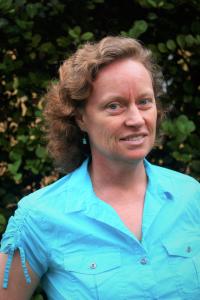Margaret Miller

Decades of Change in the Florida Reef Tract: An Oral History Project
Florida is home to the only barrier reef in the continental United States. This project uses oral history interviews of coral reef stakeholders in Florida to showcase major changes in the reef tract over the past few decades. The stakeholders interviewed include scientists, fishermen, and SCUBA (Self Contained Underwater Breathing Apparatus) divers.
Edie Mari
Margaret Miller is the Research Director for SECORE International, a conservation nonprofit dedicated to creating and sharing the tools and technologies to sustainably restore coral reefs worldwide. She leads SECORE’s research strategy and fosters research collaborations with scientific partners. Margaret serves on the US-Acropora Recovery Implementation Team (ARIT) and as a Councilor-At-Large for the International Coral Reef Society. Previously, she spent 19 years as a Research Ecologist with NOAA Fisheries’ Southeast Science Center. She led an active field research program in the Florida Keys focused on coral early life history, coral restoration, population studies of threatened elkhorn and stagorn corals and their threats as well as playing instrumental roles in shaping NOAAs coral reef monitoring program and the listing and recovery planning process for corals under the Endangered Species Act. Margaret grew up and learned to SCUBA dive in southern Indiana. She has an undergraduate degree from Indiana University and a doctorate in marine ecology from UNC-Chapel Hill. She currently resides in Miami with her husband and 17-year-old son and is an active member of Crossbridge Key Biscayne church.
Scope and Content Note
The interview with Margaret Miller, conducted on July 24, 2020, by Zachary Mason, spans a variety of topics related to coral reef conservation and restoration. Margaret Miller, Research Director for SECORE International, discusses her extensive career in coral reef restoration. She shares her experiences leading SECORE’s research strategy, fostering collaborations, and serving on various conservation teams. Miller recounts her 19 years with NOAA Fisheries, where she conducted field research on coral life history, restoration, and population studies in the Florida Keys. Her early life in southern Indiana and her educational background, including a doctorate in marine ecology from UNC-Chapel Hill, are also highlighted. The interview delves into specific projects, such as monitoring the impact of no-take zones on coral populations and studying the predation effects of snails on elkhorn and staghorn corals. Miller explains the challenges of coral bleaching, disease, and the impact of hurricanes on coral reefs. She describes the development of genetic tools to understand coral diversity and the importance of genetic management in restoration efforts. Miller's narrative underscores the emotional and scientific challenges of witnessing coral decline and emphasizes the urgent need for innovative restoration techniques, including both coral gardening and larval propagation. The interview provides a comprehensive overview of her contributions to coral reef conservation and the ongoing efforts to mitigate the effects of climate change and other stressors on coral ecosystems.
Please Note: The oral histories in this collection are protected by copyright and have been created for educational, research and personal use as described by the Fair Use Doctrine in the U.S. Copyright law. Please reach out Voices@noaa.gov to let us know how these interviews are being used in your research, project, exhibit, etc. The Voices staff can help provide other useful resources related to your inquiry.
The NOAA mission is to understand and predict changes in climate, weather, oceans, and coasts, to share that knowledge and information with others, and to conserve and manage coastal and marine ecosystems and resources. The Voices Oral History Archives offers public access to a wide range of accounts, including historical materials that are products of their particular times, and may contain offensive language or negative stereotypes.
Voices Oral History Archives does not verify the accuracy of materials submitted to us. The opinions expressed in the interviews are those of the interviewee only. The interviews here have been made available to the public only after the interviewer has confirmed that they have obtained consent.
